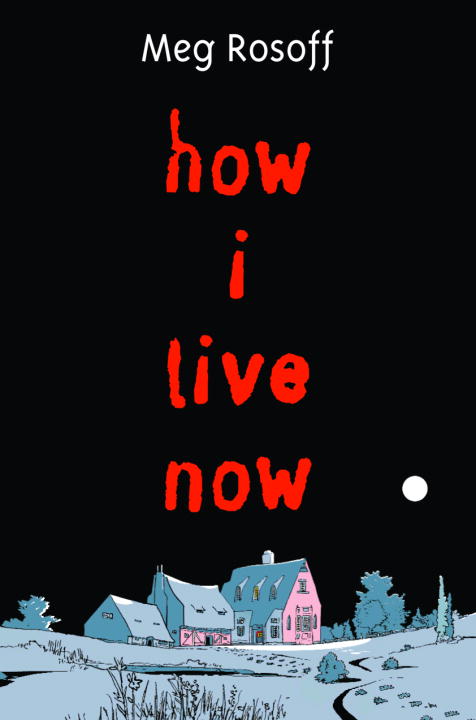 How I Live Now, Meg Rosoff
How I Live Now, Meg Rosoff
This is a strange little book. It’s spare and surreal and, in a lot of places, troubling. Just to be clear, the book begins with a fifteen-year-old girl having lots of sex with her fourteen-year-old first cousin, and goes from there. So if that’s going to freak you out, you should not read this. (On that note, there are way too many people on Amazon.com complaining about the incest. IT’S A BOOK ABOUT INCEST. That’s like complaining that Twilight has vampires in it.) But if you can get past that, there is a lot to love about this book.
Daisy, our fifteen-year-old incestuous protagonist, moves to England to escape her nasty stepmother and new stepsister. Not long after she settles in with her aunt and cousins, England is occupied by the enemy, who seem to be some kind of terrorists/guerrilla types, though it’s never entirely clear, which is actually one of the things I liked about this book. We receive very few details about the logistics of the war, mostly because they don’t particularly concern Daisy. What she cares about is protecting her new family, especially once the aunt heads off to work on conflict resolution in Norway. And the cousins – who are pseudo-telepathic, otherworldly types – do pretty well, for a while. Their existence is idyllic, really, a teenager’s dream of a life without parental supervision: long days spend sunbathing and fishing, nights spent reading and talking and having illicit sex with your cousin. But eventually, inevitably, they get split up, which is when things get messy. Up to that point, the war is just background, a set-up to allow these kids to live like adults, but How I Live Now quickly turns into a dark, post-apocalyptic war story.
(One interesting thing, which is a side note because the book treats it as one: Daisy is anorexic. I love what this gives us: in a time of famine and destruction, there’s a girl who is intentionally starving herself. There’s something cool there. It also means she gets to play at self-sacrifice without, you know, actually having to sacrifice, which I liked, especially in contrast with Life As We Knew It.)
The main complaint I’ve seen (aside from the dopes who complain about the presence of incest in a book about incest) is that the ending is too abrupt, and there’s some truth to that. Then again, the idea is that it’s 21-year-old Daisy recording her experiences from six years prior, so it makes sense that the end would feel sort of tacked-on: a coda, really. But it’s such a lovely coda that I’m not at all inclined to complain. The years between the events and her writing of them swept past her, and it’s easy to understand why. The brevity of the ending reflects that nicely.
Rosoff’s descriptions of a modern-day England under occupation are really stunning. She contrasts Austen-esque pastoral scenes with lines of soldiers carrying machine guns, which leads to a series of startling images: dead bodies spread out across a farm, soldiers sleeping in haylofts, goats and cows becoming collateral damage and starving to death, and Daisy and Piper traipsing across a bombed-out, dying countryside in search of their family. I finished this book a couple of days after Christmas, and now looking back I’m left with a lot of images from this book, which is always a good sign. I can very vividly picture any number of scenes and locations, which is a testament to Rosoff’s writing. It’s good, you guys. And this book is good.
In short:Â Fantastic writing and an unusual, intriguing premise make this one of the best books I read in 2008.
Read it if you like: Life As We Knew It, Francesca Lia Block’s Wasteland

Only cousins?
So lately, I’ve been reading Ada or Ardor by Nabakov, which opens with a 14-year-old sleeping with his 12-year-old sister, and basically gets weirder from there. I’ve never read Lolita but after reading Ada, I find it hard to comprehend how Lolita ever wound up as Nabakov’s most controversial book.
Hahaha. I have never read Nabokov at all, but I remember my mom telling me about Lolita, which she read (and apparently really enjoyed) in high school. But yikes, siblings. And TWELVE.